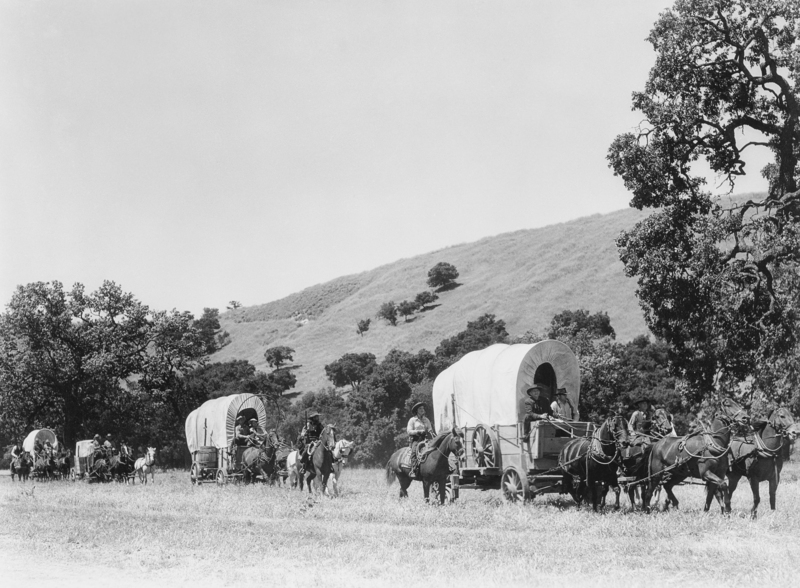Your Guide to a Composed House Move
A house move can be both exciting and overwhelming. Whether you are shifting across the city or relocating to an entirely new region, maintaining composure throughout the process is essential for a stress-free experience. This comprehensive guide is designed to help you achieve a smooth, organized, and composed relocation. Read on for actionable tips, expert insights, and helpful checklists that will make your home move as efficient and composed as possible.

Why Staying Composed During a House Move Matters
If you've ever moved house before, you know how disruptive it can be. Cardboard boxes pile up, utilities need reconnecting, and there's always that one item you can't seem to find. Maintaining composure does more than reduce stress; it ensures things don't get lost or damaged, tasks are completed on time, and you settle into your new home smoothly. Our guide to a composed house move will address every stage, helping you stay mentally and physically prepared throughout the process.
Crafting Your Composed House Move Plan
1. Start with a Clear Moving Checklist
Planning is the foundation of a relaxed house move. Before you pack a single box, create a master checklist that outlines all essential tasks before moving day. This list should include:
- Decluttering your possessions
- Booking a removal company or van
- Notifying service providers and updating your address
- Packing materials you need to buy
- Storage options (if required)
- Arranging care for pets or small children on moving day
- Scheduling deep cleaning for old and new homes
- Organizing travel plans and routes
A detailed checklist keeps you on track, ensuring nothing is forgotten and reinforcing a composed approach to your house move.
2. Declutter Before You Pack
One of the biggest mistakes people make is packing everything, including unused or unwanted items. Decluttering simplifies your composed house move by reducing both packing and unpacking times. Ask yourself:
- When was the last time I used this?
- Does this item add value or joy to my life?
- Can it be donated, recycled, or sold?
Organize a garage sale, donate to local charities, or list items on online marketplaces. This helps minimize moving costs and can even earn you some extra cash.
3. Gather Packing Supplies Early
Nothing disrupts a composed moving process like running out of boxes during a crucial packing session. Stock up on:
- Sturdy cardboard boxes, in various sizes
- Bubble wrap or packing paper
- Heavy-duty tape
- Markers for labeling
- Plastic bins for delicate or important items
- Furniture covers and moving blankets
Pro tip: Start collecting boxes from local stores or friends and family weeks in advance to save money and reduce waste.
Organizing Your House Move for Maximum Calm
4. Pack Systematically and Label Thoroughly
For a genuinely composed home move, pack one room at a time. Label every box with both its contents and the room it belongs to. For example: "Kitchen: Glassware." This avoids chaos during the unpacking phase and helps movers know exactly where to place each box.
Keep a special "Essentials Box" with items you'll need immediately on arrival at your new home, such as:
- Toiletries
- Change of clothes
- Basic kitchen supplies and snacks
- Chargers and devices
- Bedding and pillows
- Important documents (IDs, contracts, moving paperwork)
Using this method ensures you don't have to rummage through every box after a long moving day, maintaining a sense of control and composure.
5. Protect Fragile and Valuable Items
Take extra care with breakables, electronics, and sentimental valuables. Wrap each item securely and mark these boxes as "Fragile" on all sides. For expensive items, consider insuring them during transit for added peace of mind.
6. Enlist Help - Professional Movers or Friends?
A key to a calm and composed house move is not overburdening yourself. Decide whether to:
- Hire a Professional Moving Company: They handle heavy lifting, transport, and in some cases, even packing. This option frees your time for managing other aspects of your move.
- DIY with Friends or Family: Often cheaper, this method creates a team spirit, but requires careful organization to avoid confusion or injury.
Research moving companies thoroughly, checking for positive reviews, fair pricing, and valid insurance. If seeking help from friends, repaying them with food or a small gift is a nice touch!
Administrative Tasks to Keep Your Move Composed
7. Update Addresses and Notify Providers
In the middle of the moving hustle, it's easy to forget administrative details. A composed house move includes:
- Updating your address with banks, credit cards, and government agencies
- Redirecting your mail through the postal service
- Informing utilities (electricity, water, gas, internet) for seamless transfer and no loss of service
- Notifying schools, employers, and any subscription services
Set reminders in your calendar for these tasks to ensure you don't miss any critical changes.
8. Properly Disconnect and Reconnect Utilities
Arrange for disconnection in your old house the day after you move and connection at your new home the day before you arrive, wherever possible. This keeps your composed move running without interruptions, ensuring light, heat, and internet are ready on arrival.
Tips for a Calm Moving Day
9. Plan the Day's Schedule in Advance
The key to a composed house move lies in timing. Plan:
- When movers or helpers will arrive
- Estimated times for loading and unloading
- Breaks for snacks and hydration
- Pet or child care transfers
- Inspection of both old and new properties
Factor in potential delays and have backup plans ready. Starting early gives breathing space if issues arise.
10. Keep Your Essentials Close
During the move, keep your essentials box, phone, wallet, important paperwork, and valuables with you rather than packed in the moving truck. This avoids last-minute panics and lets you access necessities as needed.
11. Complete a Final Walkthrough
Before handing over your old keys, do a thorough walkthrough. Check:
- All rooms, closets, and outdoor spaces
- Cupboards and drawers
- For items left in the attic, garage, or shed
This step ensures you leave nothing behind by mistake and offers peace of mind as you lock up your old home for the last time.
Settling Into Your New Home with Composure
12. Unpack Strategically and Steadily
Don't rush to unpack every box immediately. Begin with the essentials, then move room by room based on priority. Setting up sleeping areas and the kitchen usually brings the most comfort first. Taking time to plan layouts and decorate allows you to thoughtfully settle in and create a calm, inviting environment.
13. Meet Your New Neighbors
Introducing yourself to neighbors helps you feel more at home and can be a valuable resource for local recommendations. A composed house move isn't only about logistics - it's also about integrating into your new community smoothly.
14. Celebrate Your Composed Relocation Success
Once your most important boxes are unpacked and your new house is beginning to feel like home, take a moment to celebrate. Order your favorite food, invite friends over, or simply relax and enjoy your accomplishment. This celebratory pause can refresh your energy and signal the successful end of your composed house move journey.

Frequently Asked Questions About Keeping Your Move Composed
What should I do if I feel overwhelmed during my home move?
Pause, breathe, and break tasks down into smaller, more manageable steps. Use your moving checklist and ask for help when needed. Remember, it's normal to feel some stress during a move, but staying organized will help you regain your composure.
How far in advance should I start planning?
Ideally, start 6-8 weeks before your moving date. This allows plenty of time for sorting, packing, and arranging services, making your move as smooth and composed as possible.
What if something important gets lost or damaged?
Label all valuable items, keep a detailed inventory, and ensure you have transit insurance where necessary. If something is lost or broken, contact your movers or insurance provider promptly and keep calm while the claim is processed.
In Summary: Your Guide to a Composed House Move
Whether you call it a house move or a residential relocation, maintaining a sense of composure is your most valuable asset. With forward-thinking planning, thorough organization, and a patient, strategic approach, you can transform what is often considered a stressful event into an exciting, fulfilling experience. From your first packing box to your final unpacked item, use this composed house move guide as your roadmap to a smoother transition. Welcome home!
- Prepare Early. Start weeks ahead to reduce last-minute stress.
- Stay Organized. Create checklists and label everything.
- Ask for Help. Don't move alone. Seek assistance from friends or moving professionals.
- Care for Yourself. Take breaks, eat well, and celebrate milestones.
Your journey to a composed, smooth, and successful house move starts today. Happy moving!